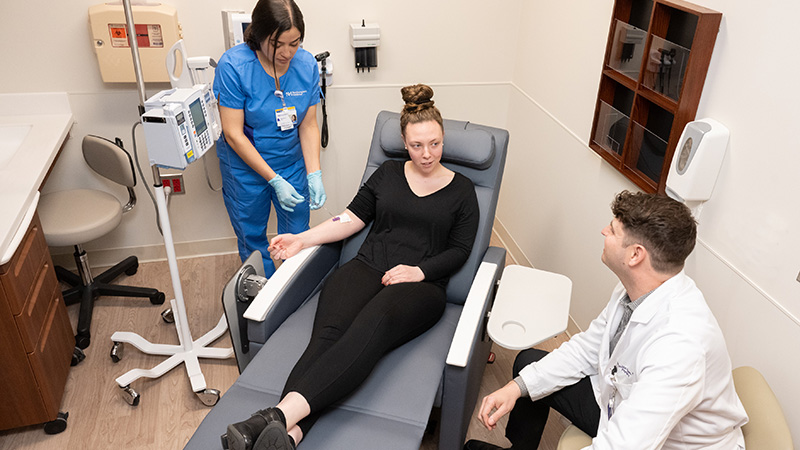Pressures Mount for Today's Teens
Performance Anxiety Is a Growing Concern
All teenagers get moody, irritable or “stressed-out” at times. But today’s teens are grappling with higher rates of performance anxiety, particularly around scholastic achievement, although athletic performance and social anxiety are common as well. How can parents (and teens themselves) recognize when anxiety is spiraling out of control, and what can they do about it?
Although she says there is no specific diagnosis for performance anxiety, Allison Kranich, LCPC, a licensed clinical professional counselor in the outpatient clinic at Northwestern Medicine McHenry Hospital in McHenry, Illinois, says, “Especially among high school students, I see [performance anxiety] all the time, and it’s increased over the years. These teens may have an underlying history of anxiety, but it blossoms in high school.”
The competition for college money has gotten more intense.— Allison Kranich, LCPC
Kranich most often sees performance anxiety in her teen patients that is related to academic demands, she says, because of the pressures they face to get scholarships and other college funding. “The competition for college money has gotten more intense,” she says. “Students say, ‘I have to be the best. I have to get the best scores.’ I see freshmen taking Advanced Placement classes and juniors taking their SAT tests early so they have time to take them again. It seems to have gotten out of hand — and that affects everything else.”
Signs and Symptoms of Anxiety
Although anxiety disorders may appear to be more common now than in previous generations, Kranich says it’s equally likely that the public is more aware of them, with a tendency to overgeneralize symptoms. “When we think of diagnosing anxiety, we have to define a subset of symptoms,” she says. “An individual with a generalized anxiety disorder experiences excessive anxiety or worry about a number of events or activities, and that worry is typically present more days than not for six months or more.” She says at least three of the following six symptoms are typically seen over that period of time:
- Restlessness
- Irritability
- Difficulty concentrating
- Muscle tension
- Sleep disturbances
- Fatigue
Kranich adds, “I see people confusing generalized anxiety and panic attacks. I think ‘panic attack’ has become somewhat of a buzzword.” A true panic attack, she explains, is defined as an abrupt surge of intense fear or discomfort that peaks within minutes with multiple symptoms that may include heart palpitations, sweating, shaking, shortness of breath, feelings of choking, and a fear of losing control or dying.
What Parents Can Do
There are ways for parents to determine if anxiety is getting the upper hand in their teen’s life. Kranich recommends that parents pay attention to any changes in their adolescent’s eating or sleeping habits, as well as slipping grades or withdrawal from friends. If they are concerned, they need to ask their teens what they are worrying about.
“Parents need to encourage teens to start talking,” Kranich says. “It might be anxiety, or it might be depression or substance abuse.” If their son or daughter is unresponsive, parents may have even more questions, which can lead to a communication impasse. At that point, pushing for information pushes teens further away, she cautions.
“If your teen doesn’t want to talk, say ‘I’m here when you’re ready,’” Kranich advises. “Leave the door open, and let them feel in control.” She adds that using teens’ preferred technology may be a way to break the ice. “Sometimes you can start with texting as a little push. I know a mom who got through to her daughter by texting her. It’s about meeting them on their level.”
Although medication may sometimes be necessary, Kranich says therapy is another great option. “Our goal [in therapy] is to help teens get a sense of control over their worry, and teens want control,” she says. She adds that cognitive behavioral therapy in particular is often the most effective treatment for anxiety disorders because it helps clients separate their thoughts from their feelings and their behaviors.
“All three of these affect each other,” Kranich says. “If you have an anxiety disorder, you tend to assume the worst in a stressful situation. Cognitive behavioral therapy helps you to take a step back from your thoughts and see them as irrational. The idea is to differentiate what you are feeling versus actual fact.”
She adds, “If someone has never tried therapy before, they should commit to a couple of sessions. It’s worth exploring.”






